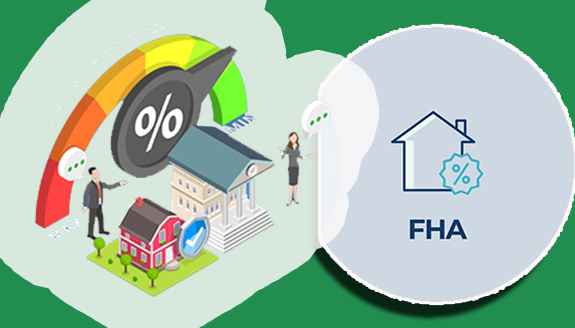HUD vs. FHA Loans: What’s the Difference? – When it comes to the world of home refinancing and buying, potential homebuyers undoubtedly come across a wide range of loan options, each having its specific requirements and benefits. One of these loan options includes HUD and FHA loans which are one of the most popular loan options as well.

What’s more, the U.S. Department of Housing and Urban Development (HUD) and the Federal Housing Administration (FHA) play a significant role in helping tons of Americans achieve homeownership through well-defined systems. HUD vs. FHA Loans: What’s the Difference? the main purpose of this article is to explain these loan types and help you understand what they are, how they work, the pros and cons, and most importantly, the differences between them.
What are HUD Loans?
HUD loans, also known as The U.S. Department of Housing and Urban Development, supervise national programs and policies that direct the housing needs of America. However, HUD loans are loans that are supported by HUD programs and are not direct loans from HUD. Those offered through the Federal Housing Administration are not excluded.
Apart from this, the U.S. Department of Housing and Urban Development provides special-purpose loans through programs like the Good Neighbor Next Door (GNND) program which helps emergency medical technicians, firefighters, teachers, and police officers.
How Does It Work?
For a wider category of HUD loans, the process involves the U.S. Department of Housing and Urban Development to ensure that many housing programs meet federal standards and requirements. For special HUD programs like GNND, if you are qualified, you will be able to buy your dream house at a 50% discount off the main price. However, you will have to commit to residing in the house or property for at least 36 months.
Pros and Cons
Here are the pros and cons of applying for a HUD loan:
Pros:
- Potentially significant discounts on home purchases.
- Access to programs aimed at revitalizing communities.
Cons:
- Strict eligibility and occupancy requirements.
- Limited availability of homes in certain programs.
What are FHA Loans?
FHA loans are a specific type of mortgage insured by the Federal Housing Administration, which is a division of HUD. Furthermore, they are designed to make home purchasing more accessible to those with lower credit scores and smaller down payments. Apart from this, FHA loans are popular among first-time homebuyers and those with limited savings.
How Does It Work?
As a potential homebuyer looking to secure or apply for an FHA loan, you must do so through an FHA-approved lender. After that, the FHA insures the loan to decrease the risk to the lender and enable easy lending mechanisms. In the meantime, you will need to make an upfront mortgage insurance premium (UFMIP) payment as well as an annual mortgage insurance premium (MIP) payment.
Pros and Cons
Here are the pros and cons of applying for an FHA loan:
Pros
- Possible refinancing of a conventional loan afterward to get rid of mortgage insurance.
- Lower down payment required.
- Easy credit score requirements, unlike conventional loans.
Cons
- Loan limits may not cover purchases in high-cost areas.
- Compulsory mortgage insurance premiums, make the loan expensive with time.
HUD vs. FHA Loans: What’s the Difference?
Here is a short comparison of HUD and FHA loans put side-by-side in a tabular form for a better understanding of their differences:
| Feature | HUD Loans | FHA Loans |
| Purpose | To support different housing needs | It makes homeownership more accessible |
| Benefit | Access to different programs for various demographics and housing needs | Lower down payments and easy credit score requirements. |
| Downsides | Availability and accessibility are limited. Strict eligibility for some HUD programs | Compulsory mortgage insurance premium, causing an increase in the cost of the loan |
| Mortgage Insurance | It depends on the program. For instance, FHA loans under HUD need mortgage insurance | Required with both annual and upfront premiums. |
| Eligibility | Differs by program. For example, GNND is limited to some public service professionals | Generally requires a 3.5% down payment and a minimum credit score of 580, as well as other requirements |
| How Does It Work | FHA loans under HUD require borrowers to apply for or obtain a loan through an FHA-approved lender. As for special programs like GNND, they offer discounted prices to qualified participants | You also need to apply through a FHA-approved lender. Moreover, the FHA will insure the loan to allow easy lending requirements |
| Accessible By | Available top only Native Americans | Available for borrowers who have below-average credit |
| Down Payment | Down payment of at least 1.5% for loans below $50,000 and 2.5% for loans above $50,000 | A down payment of at least 3.5% |
| Backed By | The government | The government |
Now that you understand and know the differences between a HUD loan and an FHA loan, you will have no problem choosing the best one for your financial needs.
